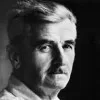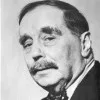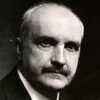When power is scarce, a little of it is tempting.
Margaret Atwood (b. 1939) Canadian writer, literary critic, environmental activist
The Handmaid’s Tale, “Historical Notes” (1986)
(Source)
On using women (the "Aunts") as collaborative enforcers of the woman-oppressing Gilead regime.
Quotations about:
survival
Note not all quotations have been tagged, so Search may find additional quotes on this topic.
ELECTRA: And let no man committing wicked acts
believe that if he runs the first leg well,
he is defeating justice, not before
he moves across the finish line and ends
the last lap in his life.[ἨΛΈΚΤΡΑ:ὧδέ τις κακοῦργος ὢν
μή μοι τὸ πρῶτον βῆμ᾽ ἐὰν δράμῃ καλῶς,
955νικᾶν δοκείτω τὴν Δίκην, πρὶν ἂν πέλας
γραμμῆς ἵκηται καὶ τέλος κάμψῃ βίου.]Euripides (485?-406? BC) Greek tragic dramatist
Electra [Ἠλέκτρα], l. 954ff (c. 420 BC) [tr. Johnston (2009), l. 1152]
(Source)
Speaking to the corpse of Ægisthus, who slew her father, Agamemnon.
(Source (Greek)). Alternate translations:Let no villain,
Tho' the first stage of his career he run
With prosperous Fortune, think he hath outstripp'd
Avenging Justice, till he reach the goal,
And end his life.
[tr. Wodhull (1809)]Let none suppose, though he have run the first stage of his course with joy, that he will get the better of Justice, till he have reached the goal and ended his career.
[tr. Coleridge (1891)]Let not a man, if he run the first course well, think he will win the victory, before he comes nigh the line, and turns the end of life.
[tr. Buckley (1892)]Let none dream, though at starting he run well,
That he outrunneth Justice, ere he touch
The very goal and reach the bourn of life.
[tr. Way (1896)]O vaunt not, if one step be proudly made
In evil, that all Justice is o'ercast:
Vaunt not, ye men of sin, ere at the last
The thin-drawn marge before you glimmereth
Close, and the goal that wheels 'twixt life and death.
[tr. Murray (1905)]So let no evildoer suppose, even if he runs the first step well, that he will get the better of Justice, until he comes to the end of the finish-line and makes the last turn in life.
[tr. Coleridge (1938 ed.)]Let every criminal like him know that just because his first criminal steps went according to his wishes that he has not defeated Justice before his life’s end.
[tr. Theodoridis (2006)]May every criminal
see that he'll never win the race with Justice!
He may run quick at first, but play it out:
run on, right to the finish line of life.
[tr. Wilson (2016)]
Conflict acting on intelligence creates imagination. Faced with conflict, creatures are forced to imagine what will happen, where the next threat will come from. If there has never been conflict, imagination never develops. Wits arise in answer to danger, to pain, to tragedy. No one ever got smarter eating easy apples.
Love is not all: it is not meat nor drink
Nor slumber nor a roof against the rain;
Nor yet a floating spar to men that sink
And rise and sink and rise and sink again;
Love can not fill the thickened lung with breath,
Nor clean the blood, nor set the fractured bone;
Yet many a man is making friends with death
Even as I speak, for lack of love alone.
What is the worst of woes that wait on Age?
What stamps the wrinkle deeper on the brow?
To view each loved one blotted from Life’s page,
And be alone on earth, as I am now.George Gordon, Lord Byron (1788-1824) English poet
Childe Harold’s Pilgrimage, Canto 2, st. 98 (1812)
(Source)
On a long enough time line, the survival rate for everyone will drop to zero.
Chuck Palahniuk (b. 1962) American novelist and freelance journalist
Fight Club, ch. 2 (1997)
(Source)
The phrase also shows up later in the book, in ch. 24: "On a long enough time line, everyone's survival rate drops to zero."
In the 1999 movie adaptation (screenplay by Jim Uhls), the Narrator's line is "On a long enough time line the survival rate for everyone drops to zero."
DAWN, n. The time when men of reason go to bed. Certain old men prefer to rise at about that time, taking a cold bath and a long walk, with an empty stomach, and otherwise mortifying the flesh. They then point with pride to these practices as the cause of their sturdy health and ripe years; the truth being that they are hearty and old, not because of their habits, but in spite of them. The reason we find only robust persons doing this thing is that it has killed all the others who have tried it.
Ambrose Bierce (1842-1914?) American writer and journalist
“Dawn,” The Cynic’s Word Book (1906)
(Source)
Included in The Devil's Dictionary (1911). Originally published in the "Devil's Dictionary" column in the San Francisco Wasp (1881-12-02).
The great calamity of the passions is not the torments they cause but the wrongs, the base actions that they lead one to commit, and which degrade men. Without these hindrances the advantages of the passions would far outweigh those of cold reason, which renders no one happy. The passions make a man live, wisdom merely makes him last.
[Le grand malheur des passions n’est pas dans les tourmens qu’elles causent, mais dans les fautes, dans les turpitudes qu’elles font commettre, et qui dégradent l’homme. Sans ces inconvéniens, elles auraient trop d’avantage sur la froide raison, qui ne rend point heureux. Les passions font vivre l’homme, la sagesse le fait seulement durer.]
Nicolas Chamfort (1741-1794) French writer, epigrammist (b. Nicolas-Sébastien Roch)
Products of Perfected Civilization [Produits de la Civilisation Perfectionée], Part 1 “Maxims and Thoughts [Maximes et Pensées],” ch. 2, ¶ 118 (1795) [tr. Merwin (1969)]
(Source)
(Source (French)). Alternate translations:The great evil of the passions does not lie in the torments which they bring upon men, but in the faults and shameful actions they cause him to commit. Were it not for this drawback they would have too great an advantage over cold reason, which can never be productive of happiness. His passions make man live, his wisdom only makes him last.
[tr. Mathers (1926)]The unfortunate thing about passions is not the misery they make one commit, and which degrade man. Without these disadvantages, they would overpower cold reason, which does not in the least a source of happiness. Passions make men live, wisdom only makes the endure.
[tr. Pearson (1973)]The great disaster of passions is not the torment they cause, but the debasing errors and depravity into which they lead men. Without these drawbacks, passion would enjoy many advantages over cold reason, which never produces happiness. Passions enable men to live, wisdom merely enables them to survive.
[tr. Dusinberre (1992)]The great misfortune of passions does not come from the torments that they cause, but from the base things they make a person do, and which degrade him. Without these inconveniences, they would have too many advantages over cold reason, which never makes people happy. Passions make a man live, wisdom and facts only make him endure.
[tr. Siniscalchi (1994)]
The condition of our survival in any but the meagerest existence is our willingness to accommodate ourselves to the conflicting interests of others, to learn to live in a social world.
Learned Hand (1872-1961) American jurist
“To Yale Law Graduates,” speech, Yale Law School (1931-06-07)
(Source)
Collected in The Spirit of Liberty (1953).
Perhaps no other animal is so torn between alternatives. Man might be described fairly adequately, if simply, as a two-legged paradox. He has never become accustomed to the tragic miracle of consciousness. Perhaps, as has been suggested, his species is not set, has not jelled, but is still in a state of becoming, bound by his physical memories to a past of struggle and survival, limited in his futures by the uneasiness of thought and consciousness.
In short, I consider this world as a place which nature never designed for my permanent abode, and I look upon my departure out of it, not as being driven away from my habitation, but as leaving my inn.
[Et ex vita ita discedo tamquam ex hospitio, non tamquam e domo; commorandi enim natura devorsorium nobis, non habitandi dedit.]
Marcus Tullius Cicero (106-43 BC) Roman orator, statesman, philosopher
De Senectute [Cato Maior; On Old Age], ch. 23 / sec. 84 (23.84) (44 BC) [tr. Melmoth (1773)]
(Source)
(Source (Latin)). Alternate translations:I departe me from this presente life as a walkyng weyfaryng man or as a voyagieng pilgryme departith from some lodgyng place or an hostellrye for to come to his owne dwellyng house. But I departe me not from this life as the lorde departeth from his owne house for this passable life is nowght ellys but as a lodgyng place or an hostellrye.
[tr. Worcester/Worcester/Scrope (1481)]And I depart out of this life as out of an inn, and not out of a dwellinghouse. For nature hath given to us a lodging to remain and sojourn in for a time, and not to dwell in continually.
[tr. Newton (1569)]And I depart out of this life, as from an Inne, not as from a continuall habitation; for nature hath given us a place to rest in, not to dwell in.
[tr. Austin (1648)]Hence from an Inne, not from my home, I pass,
Since Nature meant us here no dwelling place.
[tr. Denham (1669)]I have not frustrated the End of Nature, and am disposed to leave this life, with as much Indifference, as an Inn upon the Road; for Nature here intends us a Lodging only, not a Fixed Home or Settled Place of Habitation.
[tr. Hemming (1716)]And now I go from this Life as from an Inn; for Nature hath given it us as a Place to rest in, but not for a continual Habitation.
[tr. J. D. (1744)]And when the Close comes, I shall quit Life as I would an Inn, and not as a real Home. For Nature appears to me to have ordain'd this Station here for us, as a Place of Sojournment, a transitory Abode only, and not as a fixt Settlement or permanent Habitation.
[tr. Logan (1744)]I depart out of life just as out of an inn, and not as out of my home. For Nature has given us an hotel to sojourn in, not a place to dwell in.
[Cornish Bros. ed. (1847)]And from this life I depart as from a temporary lodging, not as from a home. For nature has assigned it to us as an inn to sojourn in, not a place of habitation.
[tr. Edmonds (1874)]Yet I depart from life, as from an inn, not as from a home; for nature has given us here a lodging for a sojourn, not a place of habitation.
[tr. Peabody (1884)]But I quit life as I would an inn, not as I would a home. For nature has given us a place of entertainment, not of residence.
[tr. Shuckburgh (1895)]I now depart
As from a lodging; house, and not a home.
Nature has made this world a place in which
One stays a little, does not dwell for aye.
[tr. Allison (1916)]And I quit life as if it were an inn, not a home. For Nature has given us an hostelry in which to sojourn, not to abide.
[tr. Falconer (1923)]But what nature gives us is a place to dwell in temporarily, not one to make our own. When I leave life, therefore, I shall feel as if I am leaving a hostel rather than a home.
[tr. Grant (1960, 1971 ed.)]And I am departing from life as from a temporary lodging, not as from a home. Yes, nature has given a spot where we may turn aside for a time, not a place of permanent residence.
[tr. Copley (1967)]But I do feel as though I am leaving an inn, not my home. Nature has given us a place to stay for a while, but not for ever.
[tr. Cobbold (2012)]I leave this life as I would leave
An inn and not a home. Nature
Gave us in fact a temporary hotel,
Not a permanent place in which to dwell.
[tr. Bozzi (2015)]I depart from life as if from an inn, not a house. Nature gives us our bodies to abide in only for a time as guests, not to make our home.
[tr. Freeman (2016)]And I am leaving life as if from an inn, not a home. For nature has given us a way-station for a brief delay, not to permanently reside.
[tr. @sentantiq (2018)]
Maybe the purpose of this sorry and tragic error committed in my native Mississippi by two white adults on an afflicted Negro child is to prove to us whether or not we deserve to survive. Because if we in America have reached that point in our desperate culture when we must murder children, no matter for what reason or what color, we don’t deserve to survive, and probably won’t.
William Faulkner (1897-1962) American novelist
“The Art of Fiction,” Interview by Jean Stein, Paris Review #12 (Spring 1956)
(Source)
Regarding the Emmett Till murder.
Blest is the man who cheats the stormy sea
And safely moors beside the sheltering quay;
So, blest is he who triumphs over trial.
One man, by various means, in wealth or strength
Outdoes his neighbour; hope in a thousand hearts
Colours a thousand different dreams; at length
Some find a dear fulfilment, some denial.
But this I say,
That he who best
Enjoys each passing day
Is truly blest.[εὐδαίμων μὲν ὃς ἐκ θαλάσσας
ἔφυγε χεῖμα, λιμένα δ᾽ ἔκιχεν:
εὐδαίμων δ᾽ ὃς ὕπερθε μόχθων
ἐγένεθ᾽: ἑτέρᾳ δ᾽ ἕτερος ἕτερον
ὄλβῳ καὶ δυνάμει παρῆλθεν.
μυρίαι δ᾽ ἔτι μυρίοις
εἰσὶν ἐλπίδες: αἳ μὲν
τελευτῶσιν ἐν ὄλβῳ
βροτοῖς, αἳ δ᾽ ἀπέβησαν:
τὸ δὲ κατ᾽ ἦμαρ ὅτῳ βίοτος
εὐδαίμων, μακαρίζω.]Euripides (485?-406? BC) Greek tragic dramatist
Bacchæ [Βάκχαι], l. 902ff (Stasimon 3, Epode) [Chorus/Χορός] (405 BC) [tr. Vellacott (1973)]
(Source)
(Source (Greek)). Alternate translations:Blest is the man who 'scapes the stormy wave.
And in the harbour finds repose:
He too is blest, 'midst dangers brave,
Who soars above the malice of his foes:
And now these, now those possess
Superior talents or success;
Distinct their aims; but hope each bosom fires.
There are, a rich encrease who find,
The vows of some are scatter'd in the wind:
But in my judgement blest are they
Who taste, tho' only for the day.
The joys their soul desires.
[tr. Wodhull (1809)]Happy is he who has fled a storm on the sea, and reached harbor. Happy too is he who has overcome his hardships. One surpass another in different ways, in wealth or power. There are innumerable hopes to innumerable men, and some result in wealth to mortals, while others fail. But I call him blessed whose life is happy day today.
[tr. Buckley (1850)]Who hath 'scaped the turbulent sea,
And reached the haven, happy he!
Happy he whose toils are o'er
In the race of wealth and power!
This one her, and that one there,
Passes by, and everywhere
Still expectant thousands over
Thousands hopes are seen to hover,
Some to mortals end in bliss;
Some have already fled away:
Happiness alone is his
That happy is to-day.
[tr. Milman (1865)]Happy he, who from the storm,
Has the breaker escaped, and the harbour has reached;
Happy he who after toil
Is the victor, for many the ways in which man
Wins him power, and wins him wealth.
Thousand-fold ever to thousands of men,
Hope follows upon hope,
With some it grows unceasingly,
With some it wastes to nothingness.
But he whose life is ever fresh,
Lives in unbroken happiness.
[tr. Rogers (1872), l. 865ff.]Happy is he who hath escaped the wave from out the sea, and reached the haven; and happy he who hath triumphed o’er his troubles; though one surpasses another in wealth and power; yet there be myriad hopes for all the myriad minds; some end in happiness for man, and others come to naught; but him, whose life from day to day is blest, I deem a happy man.
[tr. Coleridge (1891)]Blest who from ravening seas
Hath 'scaped to haven-peace,
Blest who hath triumphed in endeavour's toil and throe.
This man to higher height
Attains, of wealth, of might,
Than that; yet myriad hopes in myriad hearts still glow:
To fair fruition brought
Are some, some come to nought:
Happy is he whose bliss from day to day doth grow.
[tr. Way (1898)]Happy he, on the weary sea
Who hath fled the tempest and won the haven.
Happy whoso hath risen, free,
Above his striving. For strangely graven
Is the orb of life, that one and another
In gold and power may outpass his brother.
And men in their millions float and flow
And seethe with a million hopes as leaven;
And they win their Will, or they miss their Will,
And the hopes are dead or are pined for still;
But whoe'er can know,
As the long days go,
That To Live is happy, hath found his Heaven!
[tr. Murray (1902)]-- Blessèd is he who escapes the storm at sea,
who comes home to his harbor.
-- Blessèd is he who emerges from under affliction.
-- In various ways one man outraces another in the race for wealth and power.
-- Ten thousand men possess ten thousand hopes.
-- A few bear fruit in happiness; the others go awry.
-- But he who garners day by day the good of life, he is happiest. Blessèd is he.
[tr. Arrowsmith (1960)]Happy the man who from the sea
escapes the storm and finds harbor;
happy he who has surmounted
toils; and in different ways one surpasses another
in prosperity and power.
Besides this, for countless men there are countless
hopes -- some of them
reach to the end in prosperity
for mortals, and others depart;
but him whose life day by day
is happy do I count blessed.
[tr. Kirk (1970)]Happy he from the sea escaping
out of the storm, arriving at anchorage;
happy he fleeing labour's straining;
in many manners may men surpass other men
in prosperity and in power.
Thousand-fold upon thousand-fold
hopes come crowding upon us,
and some finally prosper
for mortals, some are vanish'd:
who day by day has a livelihood of happiness, he is blessed
[tr. Neuburg (1988)]Happy the man who withstands
life's assaults.
Somehow, in some way, some man surpasses some other
in position and fortune.
For millions of men there are millions of hopes.
For some, these ripen into happiness,
for others into nothing.
Count lucky the man who is happy on this one day.
[tr. Cacoyannis (1982)]That man is blessed who fled the storm
At sea and reached the bay.
And he is blessed who rose above
His toil. In various ways
One man outstrips in wealth and power
Another: countless men
Have countless hopes: some end in joy,
But others drift way.
The man who day to day has luck
In life -- that man I bless.
[tr. Blessington (1993)]Happy the man who escapes
the storm at sea and reaches harbor.
Happy, too, is he who overcomes
his toils. And in different ways one man
surpasses another in prosperity and power.
Besides, countless are the hopes
of countless men, Some of those hopes
end in prosperity for mortals, others vanish.
But I count him blessed whose life,
from day to day, is happy.
[tr. Esposito (1998)]Happy the man who has come away
safe on the beach from a storm at sea,
happy the man who has risen above
trouble and toil. Many are the ways
one man may surpass another
in wealth or power,
and beyond each hope there beckons another
hope without number.
Hope may lead a man to wealth,
hope may pass away;
but I admire a man when he
is happy in an ordinary life.
[tr. Woodruff (1999)]Happy is he who escapes
A storm at sea and finds safe harbor.
Happy is he who has risen above
Great toils. In different ways,
Some persons outdo others
In their wealth and power.
And hopes are as many as those who hope --
Some will end in rich reward, others in nothing.
But those whose lives are happy
Day by day -- those
I call the blesséd.
[tr. Gibbons/Segal (2000)]Blessed is he that out of the sea
escapes the storm and wins the harbor;
blessed he who triumphs over
trouble: one man surpasses another
in respect to wealth or power.
Furthermore, in countless hearts
there live countless hopes, some
ending in good fortune,
though some vanish away.
But the man whose life today is happy,
him I count blessed.
[tr. Kovacs (2002)]Joy of the storm endured,
And the harbour safely reached.
Joy of hardship overcome.
Joy of striving for wealth and power.
Joy of hope. Joy of dreams,
Fulfilled or unfulfilled.
And most blessed they who takes their joy
In the simple detail of the day by day --
[tr. Teevan (2002)]Happy is the man who has escaped the storms of life’s angry seas and found a harbour; and happy is the man who have endured those storms.
Men are infinite in number and their hopes have no end and some of these hopes bring joy to some and nothing to others.
I say blessed is the man whose life has been happy -- so far.
These are useful pieces of advice. True wisdom.
[tr. Theodoridis (2005)]Blessed is the one who's fled the
Storm at sea and come to harbour;
And happy is he who rises above
Hardships; for one may sur-
Pass another in wealth or in power,
But these are a lot hopes to a lot of
Different people; and many end in
Happiness while others fail mis’rably
But the one who's happy day-to-day,
Is the one who's truly blessed.
[tr. Valerie (2005)]Whoever has escaped a storm at sea
is a happy man in harbour,
whoever overcomes great hardship
is likewise another happy man.
Various men outdo each other
in wealth, in power,
in all sorts of ways.
The hopes of countless men
are infinite in number.
Some make men rich;
some come to nothing,
So I consider that man blessed
who lives a happy life
existing day by day.
[tr. Johnston (2008), l. 1106ff]Lucky is the man who escapes a storm at sea
and finds his way home to safe harbour --
the man delivered from hardship.
We all compete for wealth and power,
and for every thousand hearts a thousand hopes.
Some wither, some bear fruit.
But the one who lives from day to day,
finding good where he can:
he is happy --
he is a lucky man.
[tr. Robertson (2014)]Fortunate is the one who flees
The swell of the sea and returns to harbor.
Fortunate is the one who survives through troubles.
One is greater than another in different things,
He surpasses in fortune and power --
But in numberless hearts still
Are numberless hopes: some result
In good fortune, but other mortal dreams
Just disappear.
Whoever has a happy life to-day,
I consider fortunate.
[tr. @sentantiq (2018)]Happy is the one who escapes a sea-storm
and comes home to the harbor.
And happy is the one who stands against their hardships.
Happy are they who endure.
One man may exceed another, in his own way.
In wealth.
In power.
Countless hopes for yet-more-countless people.
Sometimes hope wins out, gives us riches --
And sometimes it doesn’t. Sometimes we fail.
But the one who can live in spite of this,
who is happy day to day.
That one is blessed.
[tr. Pauly (2019)]Blessed is the one who finds a harbour safe from the winter sea. Blessed is the one who travels beyond affliction. Blessed is the one who wins great joy. Numberless more have their dreams. Some hopes are fulfilled, some vanish. Whoever lives happily from day to day I bless.
[tr. Behr/Foster (2019)]Fortunate [eudaimōn] is he who has fled a storm on the sea and reached harbor. Eudaimōn too is he who has overcome his toils. Different people surpass others in various ways, be it in wealth [olbos] or in power. Mortals have innumerable hopes, and some come to telos in prosperity [olbos], while others fail. I deem him blessed whose life is eudaimōn day by day.
[tr. Buckley/Sens/Nagy (2020)]
Courage is not something that you already have that makes you brave when the tough times start. Courage is what you earn when you’ve been through the tough times and you discover they aren’t so tough after all.
Malcolm Gladwell (b. 1963) Anglo-Canadian journalist, author, public speaker
David and Goliath: Underdogs, Misfits, and the Art of Battling Giants (2013)
(Source)
Maybe all obligate carnivores are essentially the same. Can I eat that? Is it going to eat me? Is it a toy?
Elizabeth Bear (b. 1971) American author [pseud. for Sarah Bear Elizabeth Wishnevsky]
Ancestral Night (2019)
(Source)
Anyway, one of the first things you learn in space is not to thrash. If you have nothing constructive to do, the most constructive thing you can do is often nothing at all. In a mindful sense, I mean. Thrashing is the thing that gets people killed. Not sitting still.
Elizabeth Bear (b. 1971) American author [pseud. for Sarah Bear Elizabeth Wishnevsky]
Ancestral Night (2019)
(Source)
Goddess-born, wherever
Fate pulls or hauls us, there we have to follow;
Whatever happens, fortune can be beaten
By nothing but endurance.[Nate dea, quo fata trahunt retrahuntque, sequamur;
Quidquid erit, superanda omnis fortuna ferendo est.]Virgil (70-19 BC) Roman poet [b. Publius Vergilius Maro; also Vergil]
The Aeneid [Ænē̆is], Book 5, l. 709ff (5.709-710) [Nautes] (29-19 BC) [tr. Humphries (1951)]
(Source)
Nautes encouraging Achilles after fire destroys some of the ships. Sometimes paraphrased in two separate phrases:(Source (Latin)). Alternate translations:
- Quocunque trahunt fata sequamur. -- Wherever the Fates direct us, let us follow.
- Superanda omnis fortuna ferendo est. -- Every misfortune is to be subdued by patience.
What ere the mighty ire
Of gods portend, or what the fates require,
We must endure. Comforting, he begun
Thus to Aeneas: O thou Goddesse son,
Let us obey the fates; whatever chance,
All fortunes vanquish'd are by sufferance.
[tr. Ogilby (1649)]O goddess-born, resign'd in ev'ry state,
With patience bear, with prudence push your fate.
By suff'ring well, our Fortune we subdue;
Fly when she frowns, and, when she calls, pursue.
[tr. Dryden (1697)]Goddess-born, let us follow the Fates, whether they invite us backward or forward: come what will, every fortune is to be surmounted by patience.
[tr. Davidson/Buckley (1854)]My chief, let Fate cry on or back,
'Tis ours to follow, nothing slack:
Whate'er betide, he only cures
The stroke of fortune who endures.
[tr. Conington (1866)]Wherever Fate may lead us, whether on
Or backward, let us follow. Whatsoe'er
Betides, all fortune must be overcome
By endurance.
[tr. Cranch (1872), l. 840ff]Goddess-born, follow we fate's ebb and flow, whatsoever it shall be; fortune must be borne to be overcome.
[tr. Mackail (1885)]O Goddess-born, Fate's ebb and flow still let us follow on,
Whate'er shall be, by bearing all must Fortune's fight be won.
[tr. Morris (1900)]O Goddess-born, where Fate directs the way,
'Tis ours to follow. Who the best can bear,
Best conquers Fortune, be the doom what may.
[tr. Taylor (1907), st. 97, l. 865ff]O goddess-born, we follow here or there,
as Fate compels or stays. But come what may,
he triumphs over Fortune, who can bear
whate'er she brings.
[tr. Williams (1910)]Goddess-born, whither the Fates, in their ebb and flow, draw us, let us follow ; whatever befall, all fortune is to be o'ercome by bearing.
[tr. Fairclough (1916)]Goddess-born, let us follow our destiny, ebb or flow.
Whatever may happen, we master fortune by fully accepting it.
[tr. Day-Lewis (1952)]O goddess-born, there where the fates would have us
go forward or withdraw, there let us follow;
whatever comes, all fortune must be won
by our endurance.
[tr. Mandelbaum (1971), l. 934ff]Sir, born of an immortal, let us follow
Where our fates may lead, or lead us back.
Whatever comes,
All Fortune can be mastered by endurance.
[tr. Fitzgerald (1981)]Son of the goddess, let us follow the Fates, whether they lead us on or lead us back. Whatever fortune may be ours, we must at all times rise above it by enduring it.
[tr. West (1990)]Son of the Goddess, let us follow wherever fate ebbs or flows,
whatever comes, every fortune may be conquered by endurance.
[tr. Kline (2002)]Son of Venus, whether the Fates will draw us on
or draw us back, let’s follow where they lead.
Whatever Fortune sends, we master it all
by bearing it all, we must!
[tr. Fagles (2006)]Goddess-born, let's follow where fate draws us, even if we backtrack. Come what may, we'll win out by endurance.
[tr. Bartsch (2021)]
What threatens our security is not change but the inability to change; what threatens progress is not revolution but stagnation; what threatens our survival is not novel or dangerous ideas but the absence of ideas.
Henry Steele Commager (1902-1998) American historian, writer, activist
“The University and the Community of Learning,” speech, Kent State University, Ohio (10 Apr 1971)
(Source)
All passes. — Only strong art
Passes to eternity.
The bust
Survives the city.And the austere coin
That a workman finds
Underground
Reveals an emperor.[Tout passe. — L’art robuste
Seul a l’éternité,
Le buste
Survit à la cité.Et la médaille austère
Que trouve un laboureur
Sous terre
Révèle un empereur.]Théophile Gautier (1811-1872) French poet, writer, critic
“L’Art,” l. 41ff, Émaux et Camées (1852)
(Source)
(Source (French)). Alternate translations:Everything passes. --
Only robust art is eternal.
The bust outlives the city.
And the simple coin
Unearthed by a peasant
Reveals the image of an emperor.
[Source]All passes, Art alone
Enduring stays to us;
The Bust outlasts the throne, --
The Coin, Tiberius.
[Austin Dobson, "Ars Victrix" (1876), in imitation]Everything passes -- Robust art
Alone is eternal.
The bust
Survives the city.
[Source]Everything disappears -- Robust art
alone is eternal:
The Bust survives the city.
[Source]Everything passes away. -- Robust Art
Alone has eternity;
The bust
Survives the city.
[Source]
If you stay alive for no other reason at all, please do it for spite.
Maria Bamford (b. 1970) American actress and stand-up comedian
“The Special Special Special!” (2012)
(Source)
The reports of my death are greatly exaggerated.
Mark Twain (1835-1910) American writer [pseud. of Samuel Clemens]
(Paraphrase)
(Source)
This was based on a statement Mark Twain made to a British correspondent of the New York Journal (in some incorrect versions the New York Evening Sun) who tracked him down in London upon reports in America that Twain was dying there. Twain wrote out a note saying, "James Ross Clemens, a cousin of mine, was seriously ill two or three weeks ago in London but is well now. The report of my illness grew out of his illness; the report of my death was an exaggeration." This response was published 2 June 1897, and the longhand note is still preserved.
In 1906, Twain recalled the incident for his memoir that he told the reporter, "Say the report is exaggerated." On retyping the manuscript some months later, he scribbled the word "greatly" in front of "exaggerated," and it was published that way in The North American Review.
In Albert B. Paine's Mark Twain, a Biography, Vol. 2, ch. 197 (1912), the story is that Twain told the correspondent, "Just say the report of my death has been grossly exaggerated."
Further discussion:
“Darkness” is shorthand for anything that scares me — that I want no part of — either because I am sure that I do not have the resources to survive it or because I do not want to find out. The absence of God is in there, along with the fear of dementia and the loss of those nearest and dearest to me. So is the melting of polar ice caps, the suffering of children, and the nagging question of what it will feel like to die. If I had my way, I would eliminate everything from chronic back pain to the fear of the devil from my life and the lives of those I love — if I could just find the right night-lights to leave on.
At least I think I would. The problem is this: when, despite all my best efforts, the lights have gone off in my life (literally or figuratively, take your pick), plunging me into the kind of darkness that turns my knees to water, nonetheless I have not died. The monsters have not dragged me out of bed and taken me back to their lair. The witches have not turned me into a bat. Instead, I have learned things in the dark that I could never have learned in the light, things that have saved my life over and over again, so that there is really only one logical conclusion. I need darkness as much as I need light.Barbara Brown Taylor (b. 1951) American minister, academic, author
Learning to Walk in the Dark, Introduction (2014)
(Source)
sometimes you climb out of bed in the morning and you think,
I’m not going to make it, but you laugh inside
remembering all the times you’ve felt that wayCharles Bukowski (1920-1994) German-American author, poet
“Gamblers All” (1990)
(Source)
Originally titled "8 Count and Up".
To get home you had to end the war. To end the war was the reason you fought it. The only reason.
Paul Fussell (1924-2012) American cultural and literary historian, author, academic
Wartime: Understanding and Behavior in the Second World War, ch. 11 (1989)
(Source)
Sitting in stunned silence, we remembered our dead. So many dead. So many maimed. So many bright futures consigned to the ashes of the past. So many dreams lost in the madness that had engulfed us. Except for a few widely scattered shouts of joy, the survivors of the abyss sat hollow-eyed and silent, trying to comprehend a world without war.
E. B. Sledge (1923-2001) American soldier, biologist, academic, memoirist [Eugene Bondurant Sledge]
With the Old Breed at Peleliu and Okinawa (1981)
On the reaction of his fellow Marines to the announcement of the Japanese surrender in WWII.
Paul Fussell quotes this passage in his essay "Thank God for the Atom Bomb," The New Republic (26 Aug 1981), and it is sometimes misattributed to him.
Does anything in nature despair except man? An animal with a foot caught in a trap does not seem to despair. It is too busy trying to survive. It is all closed in, to a kind of still, intense waiting. Is this a key? Keep busy with survival. Imitate the trees. Learn to lose in order to recover, and remember that nothing stays the same for long, not even pain, psychic pain. Sit it out. Let it all pass. Let it go.
May Sarton (1912-1995) Belgian-American poet, novelist, memoirist [pen name of Eleanore Marie Sarton]
Journal of a Solitude, “October 6th” (1973)
(Source)
Civilization is to groups what intelligence is to individuals. It is a means of combining the intelligence of many to achieve ongoing group adaptation.
That is, natural selection built the brain to survive in the world and only incidentally to understand it at a depth greater than is needed to survive. The proper task of scientists is to diagnose and correct the misalignment.
E. O. Wilson (1929-2021) American biologist, naturalist, writer [Edward Osborne Wilson]
Consilience, ch. 4 (1998)
(Source)
Sometimes you laugh because you’ve got no more room for crying. Sometimes you laugh because table manners on a beach are funny. And sometimes you laugh because you’re alive, when you really shouldn’t be.
Terry Pratchett (1948-2015) English author
Nation, ch. 4 “Bargains, Covenants and Promises” (2009)
(Source)
It’s one of those weird truths you learn early on as police that quite a high percentage of the public have all the survival instinct of a moth in a candle factory. They run the wrong way, they refuse to move, some will run toward the danger, and others will instantly whip out their phones and take footage.
If you survive long enough, you’re revered — rather like an old building.
Katharine Hepburn (1907-2003) American actress
In Michael Freedland, Katharine Hepburn (1984)
A longer form of this is quoted in Susan Ware, Letter to the World: Seven Women Who Shaped the American Century (1998): "Well, it's just a question of survival. If you survive long enough, you're revered, rather like an old building. The great trick is to get over the middle period. That's the tricky bit."
A variant is found in the Celebrity Register (1986): "If you survive you become a legend. I'm a legend because I've survived over a long period of time. I'm revered rather like an old building."
Sometimes, carrying on, just carrying on, is the superhuman achievement.
Albert Camus (1913-1960) Algerian-French novelist, essayist, playwright
The Fall [La Chute] (1956)
(Source)
I believe in aristocracy, though — if that is the right word, and if a democrat may use it. Not an aristocracy of power, based upon rank and influence, but an aristocracy of the sensitive, the considerate and the plucky. Its members are to be found in all nations and classes, and all through the ages, and there is a secret understanding between them when they meet. They represent the true human tradition, the one permanent victory of our queer race over cruelty and chaos. Thousands of them perish in obscurity, a few are great names. They are sensitive for others as well as for themselves, they are considerate without being fussy, their pluck is not swankiness but the power to endure, and they can take a joke.
“And what would humans be without love?”
RARE, said Death.
There is, I hope, a thesis in my work: we may encounter many defeats, but we must not be defeated.
Maya Angelou (1928-2014) American poet, memoirist, activist [b. Marguerite Ann Johnson]
“The Art of Fiction,” Paris Review, #116, Interview with George Plimpton (1990)
(Source)
PISTOL: Knocks go and come. God’s vassals drop and die,
And sword and shield,
In bloody field,
Doth win immortal fame.BOY: Would I were in an alehouse in London! I would
give all my fame for a pot of ale, and safety.PISTOL: And I.
William Shakespeare (1564-1616) English dramatist and poet
Henry V, Act 3, sc. 2, l. 9ff (3.2.9-14) (1599)
(Source)
No one would have believed in the last years of the nineteenth century that this world was being watched keenly and closely by intelligences greater than man’s and yet as mortal as his own; that as men busied themselves about their various concerns they were scrutinized and studied, perhaps almost as narrowly as a man with a microscope might scrutinize the transient creatures that swarm and multiply in a drop of water. With infinite complacency men went to and fro over this globe about their little affairs, serene in their assurance of their empire over matter. It is possible that the infusoria under the microscope do the same. No one gave a thought to the older worlds of space as sources of human danger, or thought of them only to dismiss the idea of life upon them as impossible or improbable. It is curious to recall some of the mental habits of those departed days. At most terrestrial men fancied there might be other men upon Mars, perhaps inferior to themselves and ready to welcome a missionary enterprise. Yet across the gulf of space, minds that are to our minds as ours are to those of the beasts that perish, intellects vast and cool and unsympathetic, regarded this earth with envious eyes, and slowly and surely drew their plans against us. And early in the twentieth century came the great disillusionment.
H.G. Wells (1866-1946) British writer [Herbert George Wells]
The War of the Worlds, Book 1, ch. 1 (1898)
(Source)
Most of the activities of any bureaucracy are devoted not to the organization’s ostensible goals, but to ensuring that the organization survives: because if they aren’t, the bureaucracy has a life expectancy measured in days before some idiot decision maker decides that if it’s no use to them they can make political hay by destroying it. It’s no consolation that some time later someone will realize that an organization was needed to carry out the original organization’s task, so a replacement is created: you still lost your job and the task went undone. The only sure way forward is to build an agency that looks to its own survival before it looks to its mission statement. Just another example of evolution in action.
Children’s talent to endure stems from their ignorance of alternatives.
Maya Angelou (1928-2014) American poet, memoirist, activist [b. Marguerite Ann Johnson]
I Know Why the Caged Bird Sings, ch. 17 (1969)
(Source)
NARRATOR: No moral. No message. No prophetic tract. Just a simple statement of fact: for civilization to survive, the human race has to remain civilized. Tonight’s very small exercise in logic from the Twilight Zone.
My anger has meant pain to me but it has also meant survival, and before I give it up I’m going to be sure that there is something at least as powerful to replace it on the road to clarity.
Audre Lorde (1934-1992) American writer, feminist, civil rights activist
“The Uses of Anger: Women Responding to Racism” (1981)
(Source)
And when we speak we are afraid
our words will not be heard
nor welcome
but when we are silent
we are still afraid.
So it is better to speak
remembering
we were never meant to survive.
Experience: that most brutal of teachers. But you learn, my God, do you learn.
C. S. Lewis (1898-1963) English writer, literary scholar, lay theologian [Clive Staples Lewis]
(Attributed)
There are several variants, but no citation for this quotation. See Pliny the Younger.
We are in difficulties on all sides, but never cornered; we see no answer to our problems, but never despair; we have been persecuted, but never deserted; knocked down, but never killed.
[ἐν παντὶ θλιβόμενοι ἀλλ’ οὐ στενοχωρούμενοι ἀπορούμενοι ἀλλ’ οὐκ ἐξαπορούμενοι διωκόμενοι ἀλλ’ οὐκ ἐγκαταλειπόμενοι καταβαλλόμενοι ἀλλ’ οὐκ ἀπολλύμενοι.]
The Bible (The New Testament) (AD 1st - 2nd C) Christian sacred scripture
2 Corinthians 4: 8-9 [JB (1966)]
(Source)
(Source (Greek)). Alternate translations:We are troubled on every side, yet not distressed; we are perplexed, but not in despair; persecuted, but not forsaken; cast down, but not destroyed.
[KJV (1611)]We are often troubled, but not crushed; sometimes in doubt, but never in despair; there are many enemies, but we are never without a friend; and though badly hurt at times, we are not destroyed.
[GNT (1976)]We are subjected to every kind of hardship, but never distressed; we see no way out but we never despair; we are pursued but never cut off; knocked down, but still have some life in us.
[NJB (1985)]We are hard pressed on every side, but not crushed; perplexed, but not in despair; persecuted, but not abandoned; struck down, but not destroyed.
[NIV (2011 ed.)]We are experiencing all kinds of trouble, but we aren’t crushed. We are confused, but we aren’t depressed. We are harassed, but we aren’t abandoned. We are knocked down, but we aren’t knocked out.
[CEB (2011)]We are afflicted in every way, but not crushed; perplexed, but not driven to despair; persecuted, but not forsaken; struck down, but not destroyed.
[NRSV (2021 ed.)]
All things pass in time. We are far less significant than we imagine ourselves to be. All that we are, all that we have wrought, is but a shadow, no matter how durable it may seem. One day, when the last man has breathed his last breath, the sun will shine, the mountains will stand, the rain will fall, the streams will whisper — and they will not miss him.
We acquire the strength we have overcome.
Ralph Waldo Emerson (1803-1882) American essayist, lecturer, poet
Essay (1860), “Considerations by the Way,” The Conduct of Life, ch. 7
(Source)
Based on a course of lectures by that name first delivered in Pittsburg (1851-03).
JOYCE: An artist is the magician put among men to gratify — capriciously — their urge for immortality. The temples are built and brought down around him, continuously and contiguously, from Troy to the fields of Flanders. If there is any meaning in any of it, it is in what survives as art, yes even in the celebration of tyrants, yes even in the celebration of nonentities. What now of the Trojan War if it had been passed over by the artist’s touch? Dust. A forgotten expedition prompted by Greek merchants looking for new markets. A minor redistribution of broken pots. But it is we who stand enriched, by a tale of heroes, of a golden apple, a wooden horse, a face that launched a thousand ships —– and above all, of Ulysses, the wanderer, the most human, the most complete of all heroes — husband, father, son, lover, farmer, soldier, pacifist, politician, inventor and adventurer.
Richard was not dead. He was sitting in the dark, on a ledge, on the side of a storm drain, wondering what to do, wondering how much further out of his league he could possibly get. His life so far, he decided, had prepared him perfectly for a job in Securities, for shopping at the supermarket, for watching soccer on the television on the weekends, for turning up the thermostat if he got cold. It had magnificently failed to prepare him for a life as an un-person on the roofs and in the sewers of London, for a life in the cold and the wet and the dark.
Neil Gaiman (b. 1960) British author, screenwriter, fabulist
Neverwhere, ch. 4 (1996)
(Source)
The above is the original US edition language. The 2006 "Author's Preferred Text" edition restores (even in the US) a few British turns of phrase that were in the original British edition (which I am fortunate enough to own).Richard was not dead. He was sitting in the dark, on a ledge, on the side of a storm drain, wondering what to do, wondering how much further out of his depth he could possibly get. His life so far, he decided, had prepared him perfectly for a job in Securities, for shopping at the supermarket, for watching football on the telly on the weekends, for turning on a heater if he got cold. It had magnificently failed to prepare him for a life as an un-person on the roofs and in the sewers of London, for a life in the cold and the wet and the dark.
DUKE SENIOR: Sweet are the uses of adversity,
Which, like the toad, ugly and venomous,
Wears yet a precious jewel in his head.William Shakespeare (1564-1616) English dramatist and poet
As You Like It, Act 2, sc. 1, l. 12ff (2.1.12-14) (1599)
(Source)
EDGAR: O gods, who is ‘t can say “I am at the worst”?
I am worse than e’er I was. […]
And worse I may be yet: the worst is not,
So long as we can say, “This is the worst.”William Shakespeare (1564-1616) English dramatist and poet
King Lear, Act 4, sc. 1, l. 27ff (4.1.27-31) (1606)
(Source)
There is no good in arguing with the inevitable. The only argument available with an east wind is to put on your overcoat.
James Russell Lowell (1819-1891) American diplomat, essayist, poet
Speech (1884-10-06), “Democracy,” Inaugural Address, Presidency of the Birmingham and Midland Institute, England
(Source)
Where the very safety of the country depends upon the resolution to be taken, no considerations of justice or injustice, humanity or cruelty, nor of glory or shame, should be allowed to prevail. But putting all other considerations aside, the only question should be, “What course will save the life and liberty of the country?”
Out of life’s school of war: What does not destroy me, makes me stronger.
[Aus der Kriegsschule des Lebens. — Was mich nicht umbringt, macht mich stärker.]
Friedrich Nietzsche (1844-1900) German philosopher and poet
Twilight of the Idols [Die Götzen-Dämmerung], “Maxims and Arrows [Sprüche und Pfeile]” #8 (1889) [tr. Hollingdale (1968)]
(Source)
Alt. trans.:
- "From the military school of life. -- What does not kill me, strengthens me." [tr. Common (1896)]
- "From the Military School of Life: Whatever does not kill me, makes me stronger. [tr. Large (1998), "Maxims and Barbs"]
- "From life's school of war. -- What doesn't kill me makes me stronger." [tr. Norman (2005), "Arrows and Epigrams"]
- "From the military school of life. -- That which does not kill me, makes me stronger." [tr. Ludovici (1911), "Maxims and Missiles"]
GONZALO: Beseech you, sir, be merry. You have cause —
So have we all — of joy, for our escape
Is much beyond our loss. Our hint of woe
Is common; every day some sailor’s wife,
The masters of some merchant, and the merchant
Have just our theme of woe. But for the miracle —
I mean our preservation — few in millions
Can speak like us. Then wisely, good sir, weigh
Our sorrow with our comfort.William Shakespeare (1564-1616) English dramatist and poet
Tempest, Act 2, sc. 1, l. 1ff (2.1.1-9) (1611)
(Source)
A strict observance of the written laws is doubtless one of the high duties of a good citizen: but it is not the highest. The laws of necessity, of self-preservation, of saving our country when in danger, are of higher obligation. To lose our country by a scrupulous adherence to written law, would be to lose the law itself, with life, liberty, property & all those who are enjoying them with us; thus absurdly sacrificing the end to the means.
Thomas Jefferson (1743-1826) American political philosopher, polymath, statesman, US President (1801-09)
Letter (1810-09-20) to John B. Colvin
(Source)
The encouraging thing is that every time you meet a situation, though you may think at the time it is an impossibility and you go through the tortures of the damned, once you have met it and lived through it you find that forever after you are freer than you ever were before. If you can live through that you can live through anything. You gain strength, courage, and confidence by every experience in which you really stop to look fear in the face. You are able to say to yourself, “I lived through this horror. I can take the next thing that comes along.” The danger lies in refusing to face the fear, in not daring to come to grips with it. If you fail anywhere along the line it will take away your confidence. You must make yourself succeed every time. You must do the thing you think you cannot do.
Eleanor Roosevelt (1884-1962) First Lady of the US (1933-45), politician, diplomat, activist
You Learn by Living, ch. 2 “Fear — the Great Enemy” (1960)
(Source)
This is the likely source for the misattribution of this Mary Schmich quotation to Roosevelt.
Why do birds sing in the morning? It’s the triumphant shout: “We got through another night!”
Enid Bagnold (1889-1981) English writer
(Attributed)
Unsourced in this form. In her 1969 autobiography she writes:I hear that waking before dawn, that sentinel cry; and in thicket and thorn up comes the music. I hear it in the pillow; it intoxicates me. Why do they do it? I have never been taught about birds. Is it the triumph-shout -- "We have got through another night!" It may be.
HAYWOOD: There are those in our own country, too, who today speak of the protection of country, of survival. A decision must be made, in the life of every nation, at the very moment when the grasp of the enemy is at its throat, when it seems the only way to survive is to use the means of the enemy, to rest survival upon what is expedient. To look the other way. Only the answer to that is: Survival as what?
A new type of thinking is essential if mankind is to survive and move toward higher levels.
Albert Einstein (1879-1955) German-American physicist
“Atomic Education Urged by Einstein,” New York Times (25 May 1946)
This may be the source of some otherwise unsourced Einstein quotes:Einstein revisited this theme in "The Real Problem Is in the Hearts of Men," New York Times Magazine (23 Jun 1946): "Many persons have inquired concerning a recent message of mine that 'a new type of thinking is essential if mankind is to survive and move toward higher levels.' [...] Past thinking and methods did not prevent world wars. Future thinking must prevent wars."
- "The significant problems we face cannot be solved at the same level of thinking we were at when we created them"
- "The world we have created today as a result of our thinking thus far has problems which cannot be solved by thinking the way we thought when we created them."
- "The world we have created is a product of our thinking; it cannot be changed without changing our thinking."
- "This problem will not be solved by the same minds that created it."
- "We cannot solve our problems with the same thinking we used when we created them."
He who limps still walks.
Stanislaw Lec (1909-1966) Polish aphorist, poet, satirist
Unkempt Thoughts [Myśli nieuczesane] (1957) [tr. Gałązka (1962)]
(Source)
Variant: "He who limps still walks."
To condemn spontaneous and delightful occupations because they are useless for self-preservation shows an uncritical prizing of life regardless of its contents.
George Santayana (1863-1952) Spanish-American poet and philosopher [Jorge Agustín Nicolás Ruíz de Santayana y Borrás]
The Sense of Beauty, Part 1 “The Nature of Beauty,” sec. 4 “Work and Play” (1896)
(Source)
Learning is not compulsory; it’s voluntary. Improvement is not compulsory; it’s voluntary. But to survive, we must learn.
W. Edwards Deming (1900-1993) American management consultant, educator
“Quality, Productivity, and Competitive Position” seminar (24-28 Feb 1986)
(Source)
Often paraphrased: "Learning is not compulsory. Neither is survival."






























































